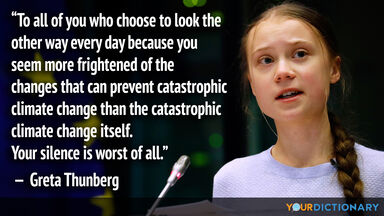Why do technologies languish? Why do they boom? What happens in between?
Leaps
While each story of technology growth carries its own unique details, it is commonly perceived that wildly successful tech “came out of nowhere”. Of course this is nonsense, and whether you check in now, a decade ago, a hundred or a thousand years ago, every “leap” is a painstaking endeavor of many years, usually by many people. So far as I know, this is without exception. Edison had 2,332 patents to his name. Brilliant man to be sure, but everything he produced he started by learning from the writings of his predecessors in his fields of interest.
Most of “the greats” were of course brilliant. Leaps are leaps because of these abilities to connect dots. But by and large any of the amazing things you take for granted are the effort of decades and even centuries of research, learning, trying a thousand things, and finally making an inch of progress.
That’s the way apparent “leaps” take place. What about the other situation? The case where the key components of a “leap” are all present, but the will to make the leap is suppressed by the inertia of existing industry? This is not referring to the case of modestly equivalent technologies succeeding simply because of better marketing plans or downright dirty tricks – e.g. the VHS/Betamax debate et al. This is not the case of “both are good, some like one more than the other” – coke vs. pepsi, android vs iphone.
Motivation & Opportunity vs The Bottom Line
What I’m talking about is real industry inertia, fealty to near-term bottom lines, the root cause of unethical exercise of capitalism. For years, even decades, we possessed the ability to make electric cars. The technology existed. Prototypes were made. I’ve seen cars that run not only on electricity, but also on compressed air, steam, kinetic flywheels, and hydrogen. I’m sure there’s others. Some of these designs were truly viable. None were mass produced or even attempted a consumer market push.
Why did Tesla succeed? Because co-founders Martin Eberhard and Marc Tarpenning did not ask permission. They didn’t try to convince one of the big auto makers to start making the product based on their designs. They sought buy-in from investors with vision. They found the money, the vision, the desire, and they got to work. They made electric cars sexy, premium, desirable. Expensive.
Now, they are trying to make them affordable. Now they have proven there is a market. They are stumbling. The cars aren’t rolling off the line like they thought they would. People are buying, and waiting 18 months for a car. Crazy! What if they can’t get it together? What if they go bankrupt trying to staunch their production woes, and simply can’t pull it off? What if all the silly press about them failing becomes a reality?
They still succeeded.
Not to their shareholders, not to their employees I’m sure – but to history. To the planet.
What is the Measure of Success?
Ford, Toyota, GM, Volkswagon…etc – the big car companies – the ones who couldn’t stave off profits and shareholder payouts for the duration it would have taken to retool their amazing production line capabilities to produce electric cars – these guys now realize they are losing business because of Tesla. So [just about every single one of them is producing, or has produced, at least one model of electric car](http://mashable.com/2017/10/03/electric-car-development-plans-ford-gm/). The race is on to make electric vehicles viable. To make distribution of charging stations as commonplace as fuel pumps. Finally, these guys have been hit hard enough in the bottom line, or at least can see it coming, that they are galvanized to action.
If they can’t react to fears of global warming and planetary destruction, at least they can react to market share reduction and government restrictions on emission levels.
So even if Tesla goes belly up, and Elon Musk has to come and sleep on my couch while he writes the next Paypal, Tesla has succeeded beyond my wildest imaginings. They moved an immovable object. Galvanized an industry (by becoming the competition). Proved a market. One might even say, in the longer term, they have changed the world.
So whether they are historically seen more in the light of Lise Meitner, a crucial scientist in the understanding of nuclear fission, and who is completely unknown by the general public, or Thomas Edison who invented half of modern technology, I can only see them as a wild success.

